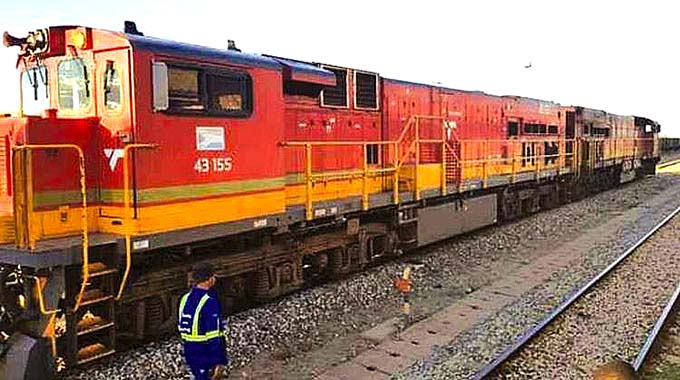Industry calls for railway rehab
Good road and rail networks are vital for efficient transportation of manufactured goods, as the former is the
cheapest mode of cargo transportation that enhances competiveness of local produce at the export markets.
Industry players have challenged government to prioritise resuscitation of the country’s dilapidated railway network — one of the key economic enablers — if the country is to realise meaningful industrialisation and export business.
Despite being at the heart of the North-South corridor, a dilapidated railway network in the country has lately prompted transporters of merchandise to resort to move their goods by road, to the detriment of roads whose life span is being shortened due to heavy cargo.
Good road and rail networks are vital for efficient transportation of manufactured goods, as the former is the cheapest mode of cargo transportation that enhances competiveness of local produce at the export markets.
While presenting her concerns to Industry and Commerce Minister, Dr Sekai Nzenza at the ongoing Confederation of Zimbabwe Industry (CZI) conference running under the theme upper middle-income industry for an upper middle-income economy “a time for industrial transformation”, Beitbridge Bulawayo Railway (BBR) chief executive officer
Thembi Moyo, lamented lack of attention being given to the management of the country’s railway network.
He argued railway networks strengthened roads lifespan.
“Transport is key to industrial transformation, we cannot leave this topic outside as we talk of industrialisation. We need to seriously capacitate our railways so that we are not left out as Zimbabwe. Railway network is not getting enough attention, there is room for both rail and road to co-exist but the challenge we are having is we now think road is the
only way for transportation.
“More support is going towards roads than to rail, which in turn is causing shortened lifespan for our roads. We can all see what is happening to our roads in terms of damage,” said Moyo.
She implored the government to go along with its regional peers’ efforts to develop sound transport networks to remain a strong trade facilitator in SADC.
Some regional counterparts have taken it upon themselves to bypass Zimbabwean transport networks, the recent being the establishment of the Kazungula Border Post, where Zambia and Botswana put up funds to create their own carriageway.
“ . . . Honourable, what I’m saying is please take the railway industry seriously rather than treating it like a back office, we can attest to the Mutare – Plumtree Highway, which was recently refurbished, but already the damage is untold because it carries some of the loads which should be moved by rail.
“Zimbabwe needs to move with others so that we do not become a bottleneck to regional transport network development. Some countries are now capacitating themselves to circumvent Zimbabwe, it is good business for us to continue facilitating trade in the region,” she added.
Along with the road transport sector, the railway system comprises all surface transport throughout Southern Africa with extensive network that has the potential to offer safe, efficient, and environmentally friendly transport across the Southern African Development Community (SADC) region, connecting all major centres of population and
economic activity.
However, railways in the region are currently operating below capacity and function as a collection of national systems rather than as an integrated regional rail network.
SADC has reiterated that it remains committed to fostering a functional and integrated rail network throughout Southern Africa as outlined in the Protocol on Transport, Communication and Meteorology enforced in 1996.-eBusiness Weekly










